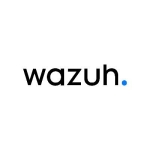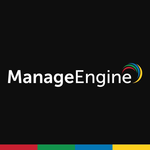What is our primary use case?
Our primary use case is to have a centralized server to manage all of our Check Point firewalls, which are around 30 clusters of firewalls. We also use it to have a place where we can see, call, and centralize the logs.
How has it helped my organization?
Every day we have new projects and new applications that need to be delivered. We need to open flows on the firewall from one point to the other. Check Point helps our security team to create the policies in a centralized way, where we can even copy policies from one firewall to the other.
It saves us a lot of time, and it's very easy to use. We can clone objects and drag and drop. It's much easier than a few years ago where we used to have Cisco firewalls and we needed to do it on the command line. Check Point is much easier. We can very quickly place trainees to work in policy creation.
What is most valuable?
The features we like and find the most valuable are the ways we can manage the policy, create objects, and drag and drop objects in our daily operation. It makes our daily operation on the firewall management much easier than going, for example, to one firewall, then going to the other. We have a centralized point of managing the firewall in terms of firewall policy and in terms of threat prevention policy where we can easily review the antivirus policy. It has a good description of which protection we are applying to the IPS on the antivirus. It's very clear and easy to use.
The SmartConsole chooses which application communicates with the manager and allows us to create the policies and also look at the log of the traffic that is crossing all the firewalls. We can manage and also see the logs of what is happening on the firewalls.
What needs improvement?
I would like for Check Point to add some features like the Smart Monitor on the R77 that are available on the SmartConsole of the R80. Now, we need to open a different application to have access to it. There are some applications that worked in the past but were not too integrated with a new application that communicates with the manager. There are some applications that should be integrated into the SmartConsole. I don't know if they will be, but everything should be on the SmartConsole and we shouldn't need to open another application.
The migration from R77 Manager to R80 is a major upgrade. It's not very easy to do. There should be some kind of Wizard for a direct upgrade from the R77 to the R80. There should be an easy way for the customers to do the upgrade.
For how long have I used the solution?
We have been using Check Point Security Management for three years.
What do I think about the stability of the solution?
It has been very stable. We don't have many complaints about stability. Once every three months or so, there are some processes on the management server that we get stuck on and we need to restart the services. After we restart, we get back to normal.
What do I think about the scalability of the solution?
It's very scalable for our use case. We have two security managers. We have one primary and one backup to manage all of our firewall infrastructure, and we have no problem with it. We always have a new firewall.
There are around eight people who work with this solution in my company. They're network engineers.
My colleague and I are responsible for the maintenance.
We have a 100% adoption rate for all of the Check Point Firewalls. We all use this manager to manage the Check Point infrastructure.
How are customer service and technical support?
We don't have any issues with support. The support is very good, especially if you work with the Israel group, but on this specific product, as this is a core product of Check Point, I would say all of the groups work fairly well.
Which solution did I use previously and why did I switch?
We also have experience with Fortinet but it's like comparing apples to oranges.
How was the initial setup?
The initial migration from R77 to the R80 was a bit complex. We had the help of a third-party company for the migration phase. We needed to export from the old manager and import it to the new one. There were some modifications we needed to do. It's not very straightforward. They had more experience in those kinds of migrations.
We have already done some upgrades and they are very easy and straightforward. For this migration, we needed to prepare the servers side by side to the old one, and we needed to do the initial configuration. It took like at least one week to prepare and to migrate it that way.
What was our ROI?
We do see ROI because we save a lot of time and we can have new team members working with the firewall very quickly. We save at least eight hours a week.
What's my experience with pricing, setup cost, and licensing?
The pricing is in line with its competition, like Fortinet.
Sometimes applying licensing in products gets a bit messy. We will apply for a license on the manager, specifically for the firewall, but you still see the firewall complaining it doesn't have any rights. In this case, we need vendor support to fix this kind of situation.
We need to devise whether we need to have remote sessions with regard to why the firewall is complaining. There must be some kind of protection for the people not to flip licenses that they shouldn't. Sometimes when you buy a new firewall, the licensing is not straightforward to apply. After we fix it, we never have issues again.
What other advice do I have?
This solution is overall our favorite Check Point product. It's a product that you need to have if you have a Check Point Firewall. If you have a Check Point Firewall, you need to have to Check Point Security Management. You cannot manage the firewalls directly, you need to have the manager.
I think it's the best product Check Point has and is the one that makes the difference. When you compare it to, for example, Fortinet, which has a manager that is web-based, it's not as easy to use and easy to drag and drop objects. The way to see the logs is not as good. It works better than web-based FortiManager, for example.
Palo Alto is also web-based, but me and my team, all of us prefer the SmartConsole over the way we have to manage FortiGate. It's very easy to search for rules on the policy, Check Point is much easier than the competition.
The competitors work well but Check Point works better.
If you refresh the page, you will lose what you did. Even the screen resolution is dependent on the browser. Drag and drop is not as good as with Check Point. It's by far the best product we have to manage firewalls. I think the thing that makes the difference on the other Check Point firewalls.
My advice would be to try the SmartConsole before deciding if you want to go ahead with buying Check Point Firewalls and the manager. You can install the application in any Windows, computer, or Windows server and try the SmartConsole in demo mode.
I would rate Check Point Security Management a nine out of ten.
Disclosure: PeerSpot contacted the reviewer to collect the review and to validate authenticity. The reviewer was referred by the vendor, but the review is not subject to editing or approval by the vendor.














